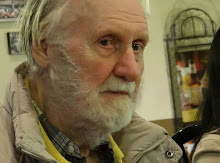Perhaps the most fitting quote we’ve ever heard regarding public opinion polls was offered years ago by comedy writer Goodman Ace, when he remarked that “Everybody pays attention to them, from the lowest ranked office boy in any business firm all the way up to Thomas E. Dewey, President of the United States”.
The astute Mr. Ace seemed to capture the very gist of the pollster universe in a nutshell with that simple observation.
For those too young to expressly remember the reason underlying such comment, the Gallup, Roper, and whatever other poll services did their thing back during the 1948 presidential campaigns, kept pumping out periodic findings, with barely a variation from start to finish. The consistent prediction was that mudslinging champion Dewey would thump Harry Truman by a significant margin.
It goes without saying that we were all extremely surprised when election day evening rolled around, and we could see a victorious Truman beaming before the camera, as he held up an anticipatorily optimistic Chicago Tribune issue proclaiming DEWEY ELECTED. The paper’s editors had obviously considered the poll results equivalent to the Gospel of St. What’s-his-name. What’s more, bookies across the country were quick to admit they had not only lost their shirts, but their undershirts as well.
The ill-fated 1948 polls, however, were not the most climactically erroneous in history. During the early 1930s, a well-respected magazine called the Literary Digest, which had existed since 1890, rolled off the presses at Funk & Wagnalls every week. Current opinion articles and news analysis formed the heart of its coverage.
Then came 1936, a presidential election year. Five candidates had reached the final showdown, but the only possible winners were Republican Governor Alfred M. Landon of Kansas and the incumbent Oval Office occupant Democrat Franklin D. Roosevelt. No doubt as a means for attracting greater reader interest, the Literary Digest conducted an ongoing poll to predict the November winner.
Being nowhere nearly as sophisticated or objective as our 21st century canvassing wizards, the magazine solicited its prospective voter preferences from the following sources only:
1. Their own readers, which consisted of the better-off incomewise, since the country was
enveloped in a deep depression, making erudite publications less than affordable to the
majority.
2. Automobile owners, at the time another group whose membership was limited to the higher
earners.
3. Telephone service subscribers, whose capability of having their homes adorned with such
gadgetry amounted to nothing less than a virtual luxury.
This naively-administered poll assured an overwhelming landslide victory for Governor Landon. The magazine folk had completely ignored the countless downtrodden citizens, whose sympathies consequently lay with FDR.
When the votes had all been counted, the tally came out Roosevelt 46 states, Landon 2. Never again has a supposedly well-conceived poll been so far off the mark. Needless to say, the Literary Digest ceased to be published shortly thereafter. Who in blazes would want to read a magazine that had exhibited such utter stupidity?
With that long since under our belts, we now jump to the present day. To express our current feelings in a couple sentences, we find ourselves up to our so-called arsses with one poll after another being waged on this subject or that. Frankly, we object to being inundated day after day with pronouncements over almost every politically-related or nearly so issue under the sun.
In fact, this writer’s former steady habit of watching CNN on the boob tube has been abruptly stopped, as if its airwaves emitted bubonic plague. We don’t wish to hear the results of polls, polls, and more polls ad nauseam any further.
The majority of today’s public opinion surveyors have likely attained optimum sophistication in their methods. Still, we believe some may be dishing out questionnaires rather slanted at times. Straightforward or otherwise, though, we’re mighty fed up with the whole lot.
Our longstanding and ever continuing preference is to deal solely with established facts, not shady suppositions.
Tuesday, August 11, 2009
Subscribe to:
Post Comments (Atom)

No comments:
Post a Comment